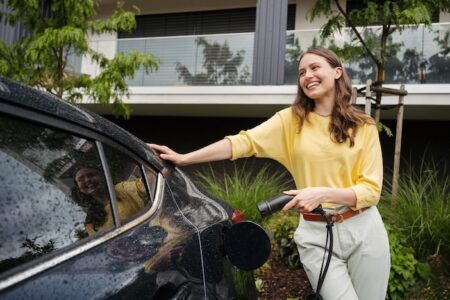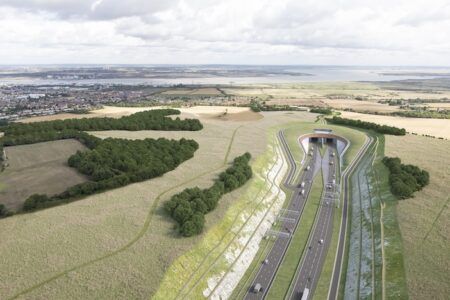A new innovation partnership between Sweden and Germany was launched yesterday (January 31) during German Chancellor Angela Merkel’s visit to Sweden. The partnership includes mobility and the development of electrical roads, areas where companies from the two countries are already cooperating on projects.
The joint announcement by Swedish Prime Minister Stefan Löfven and Chancellor Merkel, titled ‘Innovation and Cooperation for a Sustainable Future’, aims to strengthen the two nations’ sustainability, economic and technological competitiveness, and covers four areas, including mobility and electrical roads. The two governments’ announcement aims to strengthen the cooperation on development, and applying technology that is already available, while also strengthening the two nations’ ability to compete with others in offering the best sustainability solutions as the world’s needs continue to change rapidly.
The agreement also underlines the value of strategic partnerships in creating solutions for a future of sustainable transport. A key focus of the cooperation between the two countries will be the development of electrified road technology, work that has already been started by Scania in cooperation with its German counterpart Siemens. One of the world’s leading manufacturers of trucks and buses, Sweden-based Scania is now a part of Volkswagen Truck & Bus. Research and development activities are concentrated in Sweden, while production takes place in Europe and South America.
The collaboration between Scania and Siemens on electrified road technology has resulted in the world’s first electrified road for heavy goods traffic on public roads, being opened in Gävle, central Sweden, in June 2016. The 1.2 mile-long (2km) stretch of the E16 highway is run by the Region Gävleborg, close to Sandviken and the city of Gävle, and is the result of partnerships between various public and private sector entities in Sweden and Germany. Siemens has also been working with another Swedish company, Volvo, on a similar ‘electric highway’ in the USA, with a system trialed in the proximity of the Ports of Los Angeles and Long Beach in California.
Scania thinks that electrified roads represent one important part of a future sustainable transport system, and the company is now ready to take the next step from field test to real commercial implementation. “It’s an honor to be able to explain our work on the electric road to Chancellor Merkel. The agreement between Sweden and Germany underlines the value of strategic partnerships in creating solutions for a future of sustainable transport, something to which Scania is fully committed,” said Scania’s president and CEO, Henrik Henriksson. “I very much welcome the partnership and study that will be the first step of it, where Scania is happy to contribute with the experience we have gained together with our partners Siemens and the Region Gävleborg in running our hybrid trucks on the electrified road E16 outside Gävle.”




